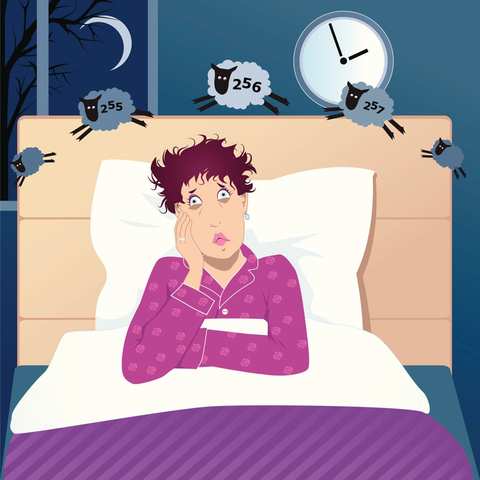Sleep Hygiene can be defined as the practices and habits one can create to promote good sleep on a regular basis.
Recommendations:
- Go to bed at the same time, and wake up at the same time +/- 30 minutes. We are creatures of habit with internal clocks that keep track of our body systems;
- Make sure that your bedroom is conducive to sleep;
- Create dark, comfortable, calm and healthy sleep environment;
- The bedroom must be quiet- no TV, no cell phones;
- Maintain normal temperature in the bedroom;
- Avoid stimulants such as caffeine and alcohol 5 hours before bedtime;
- Have a relaxing ritual – like taking a bath before bedtime;
- Meditate;
- Avoid reading in bed;
- Establish regular sleep schedule.
Advices:
Depending on the individual, clinicians choose from recommendations to help improve sleep quality.
Sleep shedule:
One of the recommendations for sleep hygiene relates to the timing of sleep, or allowing enough time for sleep. Adults who get less than seven or eight hours’ sleep can experience mental and physical health deficits. Generally, clinicians will advise that these hours of sleep must be achieved at night. There’s also a lot of focus on the importance of having a regular sleep schedule and awakening at the same time every morning.
After waking up we usually don’t remember the last few minutes before falling asleep. This form of amnesia explains why we often don't remember our ringing alarms, if we fall asleep immediately after their switching off.
Activities before bedtime
It’s recommended that the person engage in relaxing activities before bedtime, because activities that reduce cognitive activity and physiological arousal are more conducive to falling asleep. On the other hand, people who continue planning or working on important activities prior to bedtime, or even once in bed, may experience difficulty in falling asleep. That’s why good sleep hygiene means not worrying or thinking about emotionally upsetting issues prior to bedtime. If a person becomes frustrated while trying to fall asleep, they’re advised to get out of bed and do something relaxing, like reading, for a short period of time.
Foods and others substances
Caffeine drinks such as coffee, various slimming pills and decongestants stimulate certain parts of the brain and can cause insomnia. REM sleep is often suppressed by antidepressants. Keen smokers also have problems with REM phase, their sleep is very light and they tend to wake up after 3 or 4 hours of sleep. A lot of people who suffer from insomnia try to solve the problem by drinking alcohol, without being aware of the fact that it only allows them to fall asleep quicker, but reduces REM sleep and the deeper and restorative phases of sleep. Using some proper homeopathic medicines and minerals instead will help restore the quality of sleep.
How important sleep is?
At about half of the adults over the age of 65 suffer from insomnia. They spend less time in deep sleep or dreaming, which is a result of natural aging process or various medical problems.
Experts claim that if you feel sleepy during the day, especially when engaged in some boring activities, or fall asleep immediately, within 5 minutes, when lying in bed, you most probably suffer from sleep deprivation or sleep disorder. Falling asleep for a short time when you are awake is another symptom of insufficient sleep. It can become extremely dangerous when occurs in situations that demand constant alertness, such as driving a motor vehicle or working with machinery. When you are sleep deprived, the effects of alcohol consumption are magnified-a tired man gets drunk easier than a rested one. .
Coffee and other stimulants do not help when you are sleep deprived for a long time.

